
The Lockheed F-104 Starfighter is an American single-engine, supersonic interceptor which was extensively deployed as a fighter-bomber during the Cold War. Created as a day fighter by Lockheed as one of the "Century Series" of fighter aircraft for the United States Air Force (USAF), it was developed into an all-weather multirole aircraft in the early 1960s and produced by several other nations, seeing widespread service outside the United States.

The Grumman C-1 Trader is a carrier onboard delivery (COD) variant of the Grumman S-2 Tracker. It was replaced by a similar version of the Northrop Grumman E-2 Hawkeye, the Grumman C-2 Greyhound.

Beginning in the late 1950s the United States aircraft company Bay Aviation produced nine twin-engine conversions of the Beechcraft Bonanza called the Super "V" Bonanza. After production was shifted to Canada in 1962, five more aircraft were built for a total production run of fourteen. The basis of the conversion was the early Model 35 Bonanza with the original small V-tail surfaces. The Super-V competed with Beechcraft's own Travel Air twin-engine Bonanza derivative.
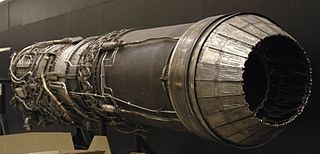
The General Electric J79 is an axial-flow turbojet engine built for use in a variety of fighter and bomber aircraft and a supersonic cruise missile. The J79 was produced by General Electric Aircraft Engines in the United States, and under license by several other companies worldwide. Among its major uses was the Lockheed F-104 Starfighter, Convair B-58 Hustler, McDonnell Douglas F-4 Phantom II, North American A-5 Vigilante and IAI Kfir.

Luke Air Force Base is a United States Air Force base in Maricopa County, Arizona, United States. It is located 7 miles west of the central business district of Glendale, and 15 miles west of Phoenix.
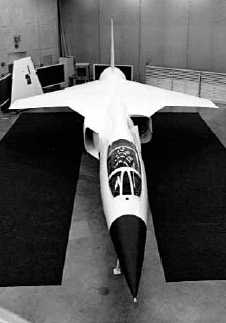
The Lockheed CL-1200 Lancer was a late 1960s company-funded proposal for a fighter aircraft based on the Lockheed F-104 Starfighter. The CL-1200 was conceived and marketed mainly for and to non-US military services, as an export product. As such it would have competed with combat-proven designs like the Dassault Mirage III, McDonnell Douglas F-4 Phantom II, Mikoyan-Gurevich MiG-21, and Northrop F-5E Tiger II. The CL-1200 competed unsuccessfully against proposed fourth generation designs, under the US government's Lightweight Fighter program, which would eventually result in the General Dynamics F-16 and Northrop F-17 Cobra.

An aircraft registration is a code unique to a single aircraft, required by international convention to be marked on the exterior of every civil aircraft. The registration indicates the aircraft's country of registration, and functions much like an automobile license plate or a ship registration. This code must also appear in its Certificate of Registration, issued by the relevant civil aviation authority (CAA). An aircraft can only have one registration, in one jurisdiction, though it is changeable over the life of the aircraft.

The Canadair CT-133 Silver Star is the Canadian license-built version of the Lockheed T-33 jet trainer aircraft, in service from the 1950s to 2005. The Canadian version was powered by the Rolls-Royce Nene 10 turbojet, instead of the original Allison J33.

The Canadair CF-104 Starfighter is a modified version of the Lockheed F-104 Starfighter supersonic fighter aircraft built in Canada by Canadair under licence. It was primarily used as a ground attack aircraft, despite being designed as an interceptor. It served with the Royal Canadian Air Force (RCAF) and later the Canadian Armed Forces (CAF) until it was replaced by the McDonnell Douglas CF-18 Hornet in 1987.
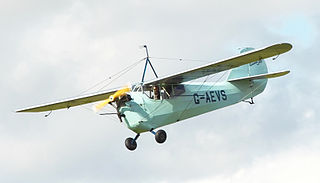
The Aeronca C-3 was a light plane built by the Aeronautical Corporation of America in the United States during the 1930s.

The Aeritalia F-104S Starfighter was a licensed production Italian version of the Lockheed F-104 Starfighter, which served in the Italian Air Force, and was its mainstay from the late 1960s until the beginning of the 21st century. The F-104S also served in the Turkish Air Force until the mid-1990s. The F-104S was the final development of the Starfighter line.
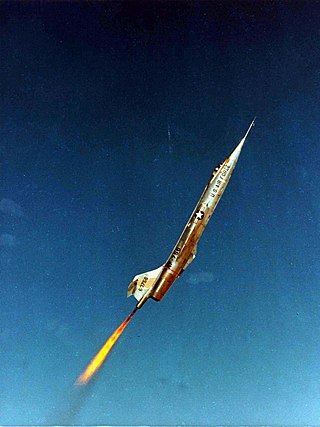
The Lockheed NF-104A is an American mixed-power, high-performance, supersonic aerospace trainer that served as a low-cost astronaut training vehicle for the North American X-15 and projected Boeing X-20 Dyna-Soar programs.

The Travel Air 6000 is a six-seat utility aircraft manufactured in the United States in the late 1920s.
Comco is the de facto name of an American company operating two Boeing 757 aircraft.

Belgian owned and operated aircraft are identified by either registration letters or serial numbers for military aircraft.
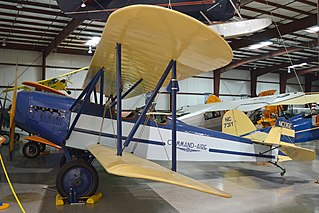
The Command-Aire 3C3 and similar 4C3 and 5C3 are American three-seat open cockpit utility, training and touring biplanes developed by Command-Aire in the late 1920s and early 1930s.















